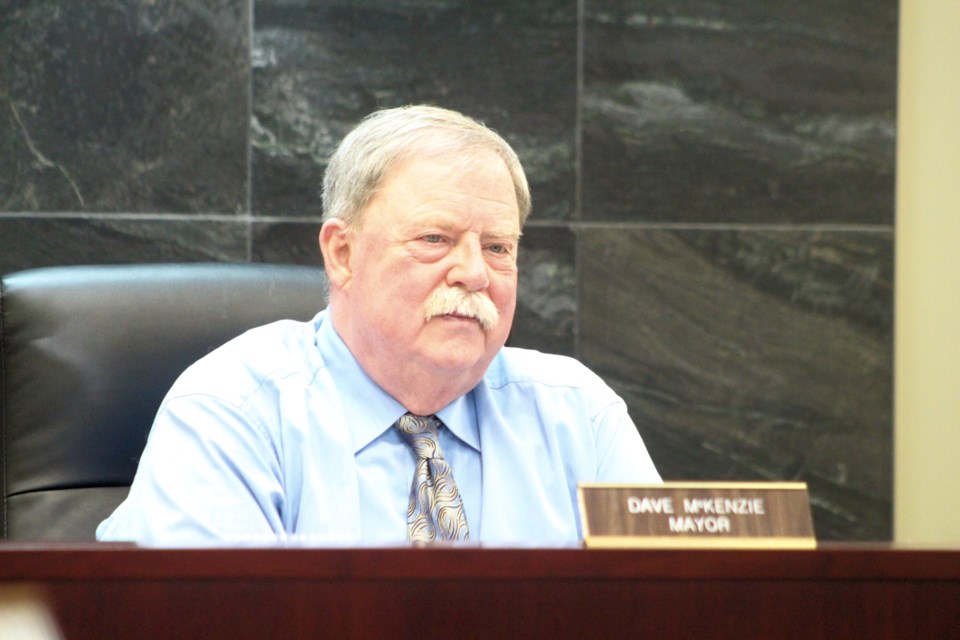BARRHEAD - The province might have difficulty finding people from rural communities to serve on the new regional super victim services boards — especially those on the fringes of their coverage area, like Barrhead.
That is what Barrhead Community Victim Services Unit (VSU) president Margaret Osborne told Town of Barrhead councillors at the March 12 council meeting.
Osborne and VSU treasurer Morris Vogelzang visited council to update councillors on the unit's amalgamation into one of four superboards. They also asked councillors to consider a $750 donation to help them continue operating until the amalgamation. Later in the meeting, councillors voted to donate $1,000, the municipality's standard annual donation.
VSUs are non-profit organizations that help support individuals who are the victims of crime, trauma, death or other emergencies. Most often, the VSU and its volunteer advocates are dispatched at the request of the RCMP. However, they also receive referrals from other agencies such as fire services, the Crown prosecutor's office, health care centres, and ambulance crews. Barrhead Community VSU unit covers the Barrhead municipalities, the Fort Assiniboine area (part of Woodlands County) and Swan Hills.
Barrhead will be on the fringe of the Eastern Alberta Regional Victim Services Society (EARVSS), which will have its headquarters in St. Paul. The amalgamation of the over 60 community VSUs is expected to be completed by the end of September.
EARVSS, headed by Richard Starke, a former Vermilion-Lloydminster Progressive Conservative Pary MLA wants 10 to 14 board members, said Osborne.
"Right now, they only have six," Osborne said, adding that all the board members are from the St. Paul region, and the outer regions of the EARVSS are not represented at all.
She added that the Alberta Regional Victim Services Society is in even worse shape with three board members.
"The board members they have [for the EARVSS] all seem very qualified and have previous VSU experience, including one retired RCMP member, but there is a definite lack of board members [outside the St. Paul hub], and I'm not sure it is just not a reflection [of what the province has done]. No one on our board wants to put their name forward."
Although most of the new victim services societies' staffing will be in the main hubs, Osborne said current VSU program managers will serve as court support navigators based out of local RCMP detachments, including Barrhead. The EARVSS will have 38 court navigators, which the province hopes to have in place by July.
"[The province] also wants to keep the volunteer advocates, but they haven't said what role they will take on," she said, adding currently, the Barrhead Community VSU only has two.
This is because it takes the volunteers nine to eleven months to receive the necessary RCMP security clearances and training.
However, she said she believed the volunteer advocates would be responding to non-crime-related trauma events, such as the one the VSU responded to on the March 10 weekend, regarding the death of a Barrhead couple that emergency first response personnel found deceased following a tragic structure collapse.
Osborne added that she is pleased that the government seemed to have a change of heart. In the initial stages, it looked like VSU would be limited to responding to crime-related events only.
"I'm so proud of their program manager, RCMP, board members, and volunteer advocates, who have continued to soldier on through the last two years of uncertainty while the province revamped the VSU service model," she said.
As a retired RCMP member, Mayor Dave McKenzie said he was pleased that the province rescinded its plan to limit VSU responses to those directly related to crime but still had several reservations.
He added that although he agreed that VSUs should be focused solely on servicing the client and not fundraising (the province has stated VSUs will be fully funded through the Victims of Crime Fund), by taking the fundraising aspect out of the equation, they would need to look at other ways to promote the service.
"The fundraising aspect definitely raises the VSUs' profile to the community," he said. "And without local representation on the board, I am afraid the VSU will lose that community connection that is so important in their work."



